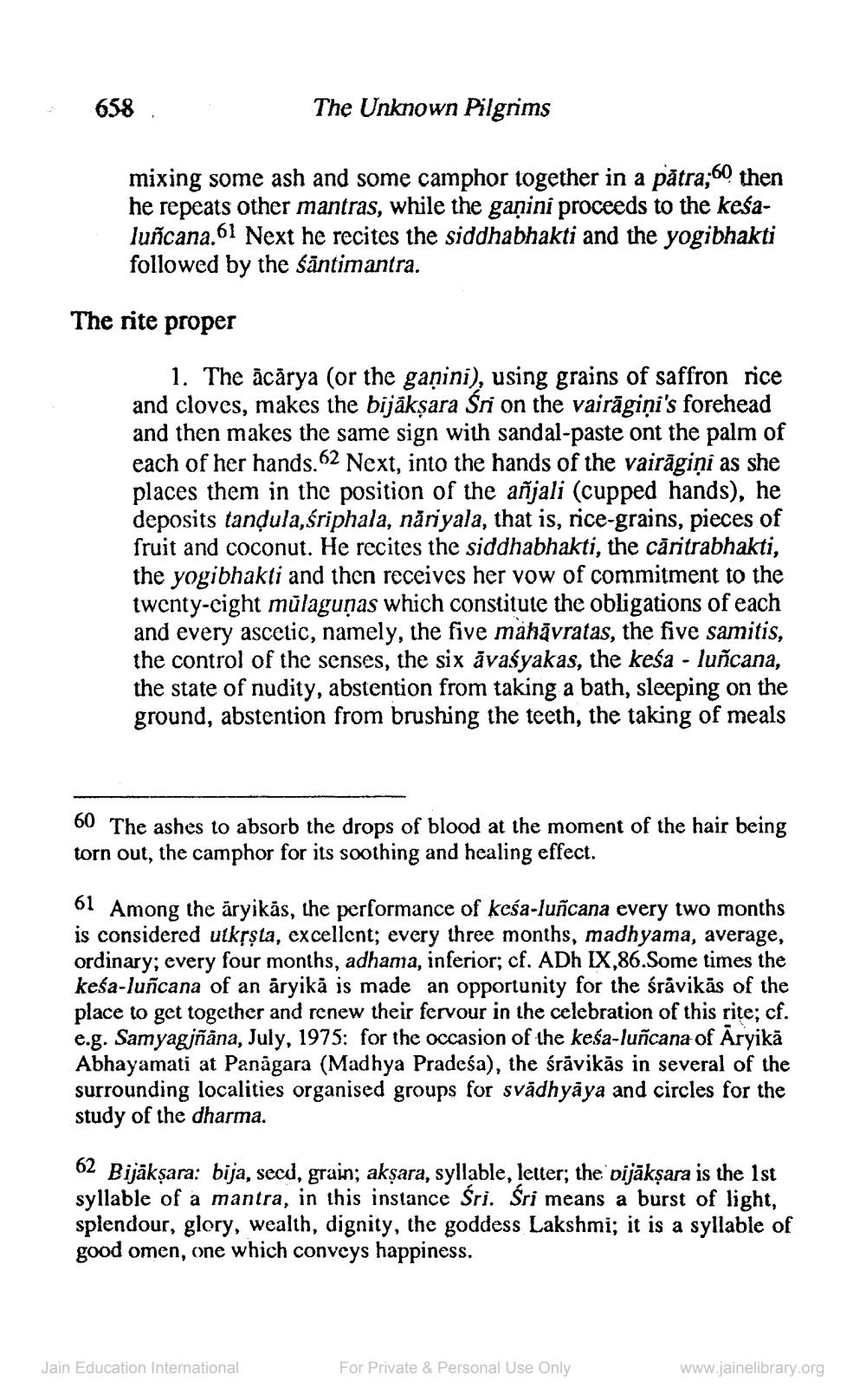________________
The Unknown Pilgrims
mixing some ash and some camphor together in a pătra;60 then he repeats other mantras, while the ganini proceeds to the keśaluñcana.61 Next he recites the siddhabhakti and the yogibhakti followed by the santimantra.
658
The rite proper
1. The ācārya (or the ganini), using grains of saffron rice and cloves, makes the bijākṣara Śri on the vairāgini's forehead and then makes the same sign with sandal-paste ont the palm of each of her hands. 62 Next, into the hands of the vairāgiņi as she places them in the position of the añjali (cupped hands), he deposits tandula,śriphala, nāriyala, that is, rice-grains, pieces of fruit and coconut. He recites the siddhabhakti, the caritrabhakti, the yogibhakti and then receives her vow of commitment to the twenty-eight mulaguṇas which constitute the obligations of each and every ascetic, namely, the five mahāvratas, the five samitis, the control of the senses, the six āvasyakas, the kesa - luñcana, the state of nudity, abstention from taking a bath, sleeping on the ground, abstention from brushing the teeth, the taking of meals
60 The ashes to absorb the drops of blood at the moment of the hair being torn out, the camphor for its soothing and healing effect.
61 Among the aryikās, the performance of keśa-luñcana every two months is considered utkṛṣta, excellent; every three months, madhyama, average, ordinary; every four months, adhama, inferior; cf. ADh IX,86.Some times the keśa-luñcana of an åryikā is made an opportunity for the śravikās of the place to get together and renew their fervour in the celebration of this rite; cf. e.g. Samyagjñāna, July, 1975: for the occasion of the keśa-luñcana of Āryikā Abhayamati at Panagara (Madhya Pradeśa), the śrävikās in several of the surrounding localities organised groups for svädhyāya and circles for the study of the dharma.
62 Bijākṣara: bija, seed, grain; akṣara, syllable, letter; the bijākṣara is the 1st syllable of a mantra, in this instance Śri. Śri means a burst of light, splendour, glory, wealth, dignity, the goddess Lakshmi; it is a syllable of good omen, one which conveys happiness.
Jain Education International
For Private & Personal Use Only
www.jainelibrary.org




